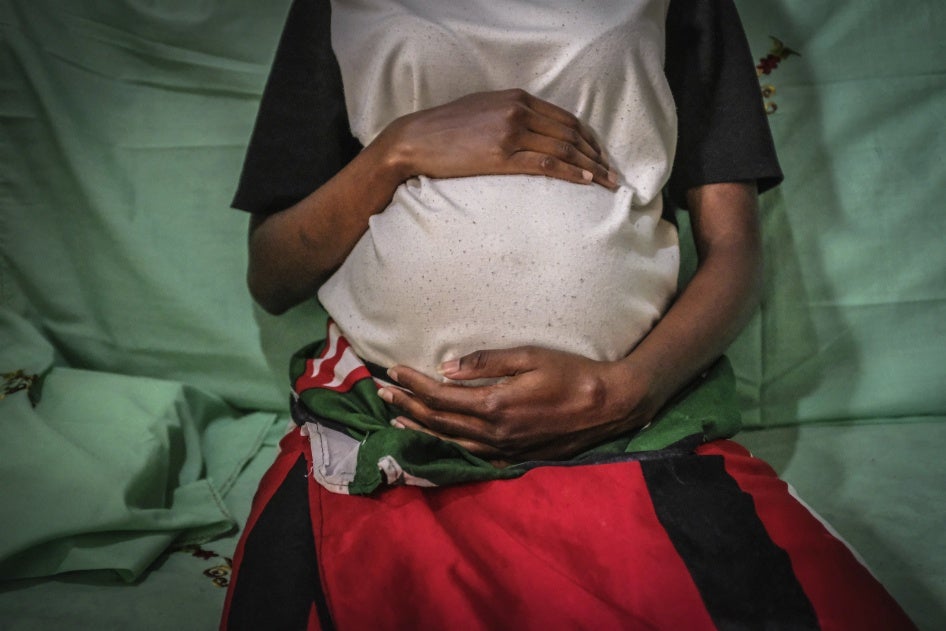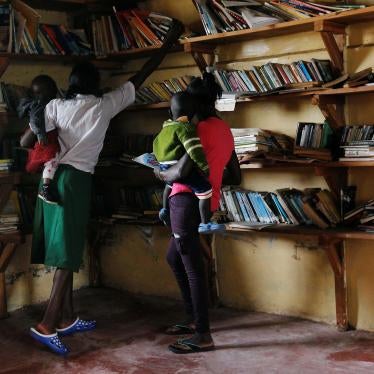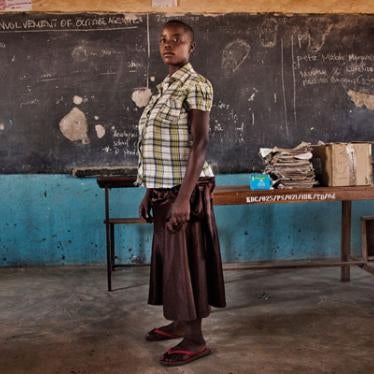Recent ridiculous statements from the Governor of Bungoma county, Kenneth Lusaka, have brought to the fore concerns that the government of Kenya intends to continue trampling upon children’s rights under the guise of addressing the challenges facing the country’s adolescents.
In a meeting with the press, the governor called for banning girls from school while pregnant and after they give birth, supposedly as a means to address teenage pregnancy. This approach has no basis in fact as data by the Kenya National Bureau of Statistics show that girls with no education are three times more likely to get pregnant than girls with a secondary education. Similarly, girls with a primary education are half as likely to become pregnant as girls with no education at all.
The governor’s proposal also has no basis in law because the right to education is an unconditional, constitutional right that is guaranteed to all children. It is not a favour or a benefit that the state, parents or schools are allowed to grant or deny at will. This holds true for children who are in situations of vulnerability such as pregnant and parenting girls.
As the African Committee of Experts on the Rights and Welfare of the Child explains, “[c]hildren who fall pregnant while in school are also girls who need the support of the state” not discrimination, stigmatisation and punishment.
It is for this reason that the African Charter on the Rights and Welfare of the Child requires African countries to ensure that girls who become pregnant before completing their education have an opportunity to continue with their education.
It is well established that teenage pregnancy can only be comprehensively addressed by measures that protect and realise adolescents’ rights. In particular, governments need to ensure that all adolescents have access to education, including comprehensive sexuality education, and responsive sexual and reproductive health services.
Governments also need to prevent and address sexual violence against adolescents and sexual exploitation of adolescents—which both disproportionately affect girls.
Unfortunately, the governor’s statements are not an isolated incident. They bring to mind equally absurd statements made by the country’s Cabinet Secretary for Health, Susan Nakhumicha, that adolescents should be denied access to contraception and comprehensive sexuality education.
They also feed into the regressive trend that Kenya has embarked on over the last 10 years which seeks to curtail adolescents’ rights and, in so doing, has hampered efforts to address teenage pregnancy and other negative health outcomes among adolescents.
In 2013, after undue pressure from anti-rights groups, the government withdrew the Standards and Guidelines for Reducing Morbidity and Mortality from Unsafe Abortion in Kenya. Despite a 2019 court order, the government has yet to reinstate them.
This gap in law denies healthcare providers the guidance they need to provide safe abortion care in accordance with the Constitution, even to women and girls who are survivors of rape and other forms of sexual violence and exploitation.
In 2018, the government adopted a new basic education curriculum that failed to incorporate comprehensive sexuality education. In 2023, the country withdrew from the East and Southern Africa Ministerial Commitment on Comprehensive Sexuality Education and Sexual and Reproductive Health Services for Adolescents and Young People.
Both these measures were taken even though guidance from both the African Union and the United Nations continues to emphasise states’ obligations to include comprehensive sexuality education in education curricula.
Further, research has consistently shown that adolescents are the demographic with the least knowledge on how they can prevent pregnancy and the highest levels of misinformation on contraception.
In 2022, Kenya adopted the National Reproductive Health Policy (2022-2032) and the Children’s Act, which both require parental consent for adolescents’ access to sexual and reproductive health services notwithstanding clear evidence that laws and policies that require parental consent act as a barrier to services for adolescents.
Against this backdrop of regression, it becomes important for citizens to call for the Government of Kenya, both national and county governments, to re-commit to working toward an evidence-based legal and policy environment that respects and promotes adolescents’ rights rather than eroding them.









